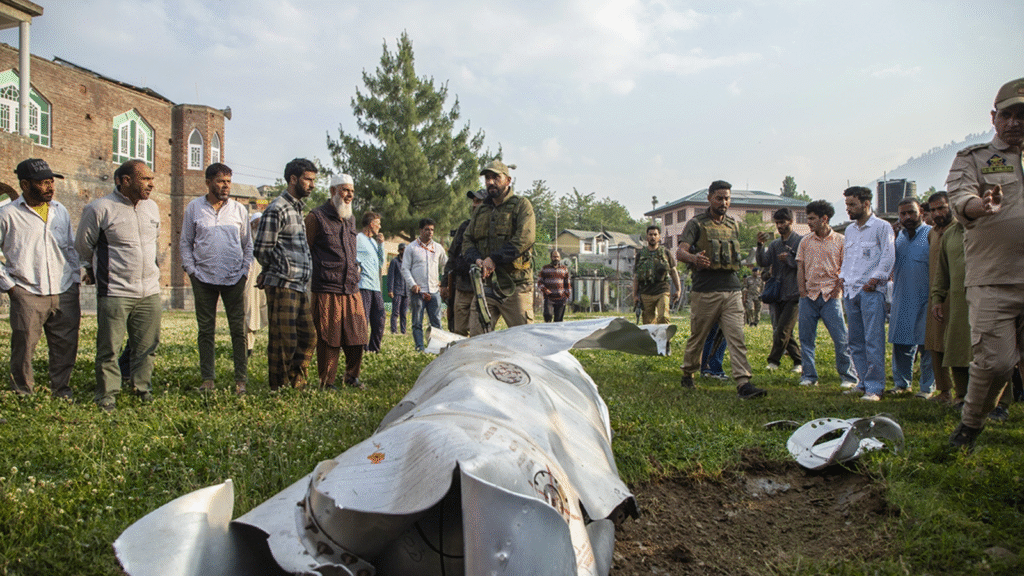Nepal Calls for Calm India-Pakistan Tensions, Issues Advisory for Students
On April 22, 2025, a deadly terrorist attack in Pahalgam, Indian-administered Kashmir, killed 26 people, mostly tourists. India blamed Pakistan-based militant groups, specifically Lashkar-e-Taiba and Jaish-e-Mohammed, for the attack.

Pakistan denied any involvement. The attack, the deadliest in over 15 years, reignited tensions between the two nuclear-armed neighbors. On May 7, 2025, India launched “Operation Sindoor,” a series of airstrikes targeting nine alleged terrorist camps in Pakistan and Pakistan-administered Kashmir.
Indian officials called the strikes “measured” and “non-escalatory,” aimed at destroying terrorist infrastructure. The strikes hit sites in Punjab, Muridke, Bahawalpur, and other areas, marking the most significant military action since the 1971 India-Pakistan war.
India’s Defense Minister Rajnath Singh claimed the operation killed over 100 terrorists, though this number remains unverified. Pakistan reported 31 deaths, including civilians, and condemned the strikes as a violation of its sovereignty. The attack set off a chain of retaliatory actions, raising fears of a wider conflict.
Cross-Border Clashes and Retaliation
Following India’s strikes, both countries engaged in heavy artillery fire across the Line of Control (LoC) in Kashmir. Pakistan claimed it shot down 16 Indian drones on May 8, while India said it neutralized Pakistani attempts to attack military bases in northern and western India, including Srinagar, Amritsar, and Chandigarh.

Nepal Calls for Calm India-Pakistan Tensions Issues Advisory for Students
On May 8, India conducted further strikes, targeting Pakistani air defense systems, including a radar in Lahore. Pakistan’s military vowed a strong response, with Defense Minister Khawaja Asif stating the attacks “will not go unanswered.” Pakistan’s Prime Minister Shehbaz Sharif condemned India’s actions and promised retaliation “at a time and place of our choosing.”
Cross-border shelling has killed at least 48 people, with 32 deaths in Pakistan and 16 in India, including civilians. Both nations have enforced blackout drills and evacuated people from border areas.
Panic-buying was reported in India’s Punjab state. Explosions were heard in Jammu and Kashmir’s Rajouri and Poonch districts on May 9, with a complete blackout in Jammu city.
International Concerns and De-escalation Efforts
The international community is alarmed by the rising tensions. China expressed support for Pakistan, with Foreign Minister Wang Yi backing its “sovereignty and security interests.”
The U.S. urged Pakistan to end support for terrorist groups, while also expressing sorrow for civilian losses. Turkey condemned India’s strikes, warning of the risk of “all-out war.” Experts suggest de-escalation requires global mediation, but both nations face domestic pressure to appear strong.
Pakistan’s military chief, General Asim Munir, is under scrutiny to respond decisively, while India insists its actions were justified. Analysts warn that further escalation could lead to a broader conflict, given the nuclear capabilities of both countries.
Nepal Expresses Deep Concern Over India-Pakistan Tensions
For the first time, the Government of Nepal has spoken publicly about the ongoing tensions between India and Pakistan. In a press release issued Thursday, the Ministry of Foreign Affairs strongly condemned terrorism and reaffirmed Nepal’s firm stance against all forms of terrorist acts.

“Nepal has always taken a clear and strong position against all kinds of terrorism. We stand with the international community in the fight against terrorism,” the statement said.
The government expressed deep concern over the increased tensions between India and Pakistan following a terrorist attack on April 22 in Pahalgam, India, where an innocent tourist from Nepal was also affected.
“Even during that tragic time, Nepal stood with India. Our support against terrorism remains strong,” the statement added.
Nepal Urges Peace, Vows Not to Let Its Soil Be Misused
The government further stated that it will not allow Nepali territory to be used against any neighboring countries. Nepal hopes that the current tension between India and Pakistan will de-escalate soon.
Alongside this diplomatic message, Nepal’s Foreign Ministry issued an advisory concerning the safety of Nepali citizens residing in Pakistan, especially students.
Advisory Issued for Nepali Students in Pakistan
Due to rising India-Pakistan tensions, the Foreign Ministry has issued an advisory for Nepali students studying in Pakistan, urging them to stay in close contact with the Nepal Embassy in Islamabad.
The advisory said the Nepal government is fully alert to ensure the safety and well-being of its citizens in Pakistan. The Embassy is maintaining regular contact with Nepali students and other citizens living there.
In case of any urgent need, students and their families have been advised to contact Third Secretary Vrinda Subedi Khadka and Arslan Mehmood at the Embassy at any time.
A large number of Nepali students travel to Pakistan for studies in health and medical sciences. However, the government does not have accurate data on how many Nepali students are currently in Pakistan. While students are required to obtain a No Objection Certificate (NOC) from the Ministry of Education before studying abroad, some still travel to countries like India and Pakistan informally, bypassing this requirement. As a result, officials say the government lacks precise statistics.
Nepal Press had inquired about the number of students who went to Pakistan with an NOC, but due to a server issue at the Ministry, the data was not available at the time.


 India-Pakistan Agree on US-Mediated Ceasefire
India-Pakistan Agree on US-Mediated Ceasefire  Pakistan Launches Operation Bunyan al-Marsus
Pakistan Launches Operation Bunyan al-Marsus  Former UK PM Rishi Sunak Backs India’s Anti-Terror Operation
Former UK PM Rishi Sunak Backs India’s Anti-Terror Operation  India Pakistan War : Latest Updates
India Pakistan War : Latest Updates